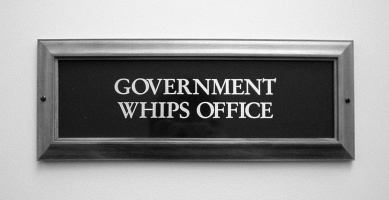Is a new code of conduct needed for sex workers? That’s certainly the view of Tory back bencher Joseph Fotheringham-Cock, whose private members bill proposing the introduction of binding non-disclosure contacts upon sex workers employed by the rich and famous, is currently having its first reading in the Commons. “It really is getting out of hand, these women selling their ‘kiss and tell’ stories to the press, revealing, in lurid detail, what they’d been doing with the great and the good in private,” the MP, who is currently the subject of a series of sensational revelations in the Daily Norks, concerning his liaisons with notorious Kensington dominatrix ‘Saucy Sarah Spankbottom’, under the title ‘Three Line Whip’, explained to the House. “Frankly, I’m shocked that the rich and famous apparently can no longer rely upon the discretion of the sex workers they use. Damn it, shouldn’t a chap be able to expect lifelong silence when he’s paid good money for their services?” He denied vehemently that his Bill was in any way frivolous or motivated by purely personal considerations. “I don’t think that it is at all a waste of parliamentary time attempting to impose legal restrictions on escorts and other ladies of the night – these constant scurrilous stories are in danger of bringing government business to a halt every time one of them names a minister.,” he claimed. “It becomes impossible for the poor buggers at the centre of these so called ‘sex scandals’ to get on with their proper business without being pilloried and ridiculed, completely undermining their credibility.”
Indeed, Fotheringham-Cock believes that sex workers should themselves be welcoming his initiative, as it would, effectively, give legal recognition to their professional status. “By imposing client confidentiality upon them, it would put them on a par with doctors and lawyers,” he told the Commons. “Honestly, I don’t know how anyone could object to these proposals – these sorts of breaches of confidentiality wouldn’t be tolerated in any other profession.” Moreover, as the back bencher also pointed out, as the sex workers in question had been paid for their services, they were, to all intents and purposes, employees. “In any other field of employment, such flagrant breaches of contract would result in dismissal,” he contended. “Or, at the very least, severe disciplinary action.” Rather than fines or the threat of prison, he argued, those found guilty of breaching confidentiality should perhaps face a ‘damn good bare arsed spanking over the victim’s knee’ instead. “If nothing else, my Bill, if made law, would completely eliminate the need for these damned super-injunctions,” he told MPs. “Not only are these enormously expensive for the victims, but they also represent a colossal waste of court time and, subsequently, taxpayers money.”
Fotheringham-Cock’s supposedly altruistic motivation for introducing the Bill – to protect the ‘victims’ of ‘kiss and tell’ stories – have been questioned by other politicians. “It’s significant that the Bill would only protect ‘rich and famous’ clients from having their business splashed across the tabloids,” Labour’s Ken Clobber noted during the debate. “As ever, the working class punter – who can’t afford even to think about obtaining a super injunction, is frozen out of the legal process, offered no recourse whatsoever.” However, Peter Huntley-Prodders, editor of Tattle magazine, the journal of the idle rich, is dismissive of Clobber’s critique. “Now look, it just isn’t the same thing at all, is it?” he told the BBC’s Newsnight, following the Bill’s first reading. “I mean, who on earth is going to be interested if, say, some fishmonger from Clapham has his bestial sexual trysts with some back alley slapper spread over the front page of their local paper? It just isn’t going to happen, is it? But if someone wealthy and famous who, by their very nature, is intrinsically important to the national psyche has their five star hotel room assignations with a high class escort trumpeted in the press, then the whole world is going to want to poke their noses into their business. It’s just a fact of life, I’m afraid, that rich people’s sex lives are more interesting than those of the sweaty masses.”
Huntley-Prodders believes that the recent spate of celebrity sex revelations and the accompanying super injunctions are indicative of a general decline in standards in British public life. “Damn it, back in the day a gentleman could indulge in any kind of sexual shenanigans he liked, secure in the knowledge that the lady involved would maintain a discreet silence,” he mused during his Newsnight interview. “Whatever their kink was, they could get on with it in perfect privacy. But nowadays poor John Whittingdale can’t even get some personal service from a dominatrix without it being all over the front pages. I blame a lot of it on the rise of these rather vulgar new ‘celebrities’ – actors, musicians and footballers. I mean, just look at the most recent super injunction, where the mystery celebrity allegedly paid the girl in question £195 for a session. One has to say that perhaps he shouldn’t have been such a cheapskate and instead coughed up for one of those classy sex workers one sees in motion pictures, whose professionalism can be relied upon. After all, the girl at the centre of the revelations once went with Wayne Rooney – which is enough, surely, to indicate her lack of standards.”
Clobber remains unconvinced, suspecting sinister motives for Fotheringham-Cock’s attempts to gag sex workers. “Perhaps he and his wealthy friends aren’t so worried about these women revealing what their sexual kinks are than they are that the women might reveal what was done to them,” he opined. “I have no doubt that there are quite a few of them who like handing out a beating, or subjecting sex workers to all sorts of painful and humiliating sexual practices.” A radically different perspective on the whole issue of sex worker revelations and celebrity super injunctions has been provided by film critic Harry Tickler. “When all’s said and done, this latest celebrity super-injunction just goes to underline how lightweight modern celebrities are,” he told the One Show. “Back in the day, when we had real stars, they would have been going out of their way to make out sure that the entire world knew about their indiscretions – it would enhance their status as ‘wicked rogues’. Mind you, back then their bad behaviour generally involved drunken rampages culminating in indecent exposure. But you wouldn’t have had Oliver Reed, for instance, trying to suppress headlines like ‘Drunken Ollie Reed gets his cock out in convent rampage.’ He’d have been bloody proud of it!”











